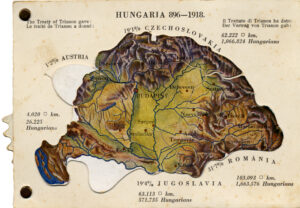Celebrating 5 Heroic Hungarian Women in 2024
By Sharon Schweitzer, Polina Anastassieva
As we close out our celebration of National Women’s History month, we share the stories of these talented Hungarian women.
Blanka Teleki (1806-1862) Blanka Teleki was the national pioneer of the Hungarian women’s education and a representative of civilian women’s emancipation. In 1846, Teleki founded a women’s education institute in Pest. In 1848, she and her students were the first females in Hungary to sign a petition demanding equal rights for men and women in Hungary, demanding women’s suffrage, and the right for women to attend university. After she participated in the Revolution of 1848 she was sentenced to 10 years in prison for activities in the national resistance. Teleki spent 5 years in Brno and Olomouc, Czech Republic and in Kufstein, Austria. She spent the rest of her life in Paris, France helping Hungarian refugees and promoting the causes of Hungarian nationalists.
Zsuzsanna Kossuth (1817-1854) Zsuzsannawas Kossuth was a Hungarian freedom fighter in the 1848 Hungarian Revolution. She was the sister of Lajos Kossuth. In 1841, she married Rudolf Meszlényi. She and Rudolph were both members of the National Protective Association. In April 1849, her brother appointed her chief nurse of all Hungarian military hospitals. After she was charged with the responsibility to organize the entire medical military system in Hungary, she founded 72 military hospitals. Kossuth encouraged women to volunteer as medical nurses, and organized the volunteer effort. She is regarded as the founder of modern nursing, 5-6 years before Florence Nightingale started similar activities in the Crimean War.
Vilma Hugonnai (1847-1922) Countess Vilma Hugonnai was the fifth child of Count Kálmán Hugonnai and Riza Pánczély and the first female Hungarian medical doctor. She studied Medicine in Zürich, Switzerland and received her degree in 1879. When Hugonnai returned to Hungary the Hungarian administration refused to recognize her doctoral qualifications because of her gender. She worked as a midwife until 1897, when the Hungarian authorities accepted her degree and she started her medical practice.
Blanka Péchy (1894-1988) Blanka Pechy was a Hungarian actress, entertainer, writer, linguist, radio presenter, cultural attaché of the Hungarian Embassy in Vienna, Director of Collegium Hungaricum, founder of the foundation and founder of the Kazinczy Prize. Pechy is known for Pax vobiscum (1920), A 9-es kórterem (1955) and Gyalog a mennyországba (1959). She created an award in 1960 to reward well-spoken professional speakers. In 1986, in memory of her deceased first husband, Lajos Magyar, she founded an award for journalists. Since 1994, the Kazinczy Prize Foundation has been awarding the Péchy Blanka Prize to recognize primary and secondary school teachers.
Mária Telkes (1900-1995) Maria Telkes was a Hungarian-American biophysicist and inventor who worked on solar energy technologies. She moved to the United States in 1925 to work as a biophysicist. She became a U.S. citizen in 1937 and started work at the Massachusetts Institute of Technology (MIT). Telkes created practical uses of solar energy in 1939. During World War II, she developed a solar distillation device, deployed at the end of the war, which saved the lives of downed airmen and torpedoed sailors. Her goal was to create a version for villagers in poor and arid regions. Telkes, often called by colleagues The Sun Queen, is considered one of the founders of solar thermal storage systems. After the war, she became an associate research professor at MIT. In 1952, Telkes became the first recipient of the Society of Women Engineers Achievement Award. She was awarded a lifetime achievement award from the National Academy of Sciences Building Research Advisory Board in 1977. Telkes registered more than 20 patents.
When you read about the accomplishments of these female pioneers, what are you inspired to do with your talents?
Photo by www.dvhh.org/history/1900s/manza.htm
Sharon Schweitzer JD, is a diversity and inclusion consultant, cross-cultural trainer, etiquette expert, and the founder of Access to Culture. In addition to her accreditation in intercultural management from the HOFSTEDE Centre, she is an attorney and mediator. Sharon served as a Chinese Ceremonial Dining Etiquette Specialist in the documentary series Confucius was a Foodie, on Nat Geo People. Her Amazon #1 Best Selling book in International Business, Access to Asia: Your Multicultural Business Guide, won a coveted Kirkus Star, and was named to Kirkus Reviews’ Best Books. She’s a winner of numerous awards, including the British Airways International Trade Award at the Greater Austin Business Awards.
Polina Anastassieva, is a compliance, fraud prevention and detection, and risk management analyst, as well as an international business consultant. Polina is also an entrepreneur and a writer, her blog, specifically focuses on understanding international topics such as trade, culture, foreign affairs, and conducting business around the globe. She has also been featured on St. Edward’s University‘s alumni website, as a distinguished member and supporter for the community. Additionally, she is on the board of World Affairs Council of Austin.
#SharonSchweitzer, #AccesstoCulture, Access2Culture, #InternationalCelebration, #AccesstoAsia, #GlobalEtiquette, #Cross-CulturalTrainer, #InterculturalCommunication, #InternationalCommunication, #Interculturalist, #Etiquette, #CultureExpert, #Speaker, #KeynoteSpeaker, #Hungary, #Hungarianwomen, #WomensSuffrage, #Education, #Medicine, #Engineering, #Acting


Leave A Comment